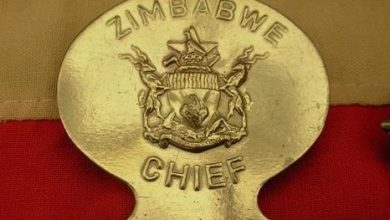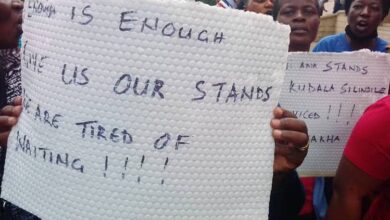‘Patriotic Bill’ poses a major threat to journalism

A legal expert has warned that the proposed Criminal Law (Codification and Reform) Amendment Bill may view the media’s coverage of the government’s wrongdoings as harmful to the State since its provisions on patriotism seek to criminalise those who undermine the country.
As a result, the media must question the true intentions of the proposed bill, according to Clifford Ncube of Mabundu and Ndlovu Law Chambers, who added that journalists may also need to seek legal counsel before publishing anything viewed as injurious to the State.
“What does the bill seek to achieve? Is there a link between the intended purpose and what is meant in its provisions?” questioned Ncube as he noted that the ‘Patriotic Bill’ was not an issue but the challenge was in its contents.
He said once the bill is passed into law, police would have to arrest those who defy it and someone’s freedom depended on how they explained themselves.
“If the police say ‘we understand you can go,’ but if they don’t, and arrest you, the court will decide your fate,” he said, adding this also applied to how journalism content would be interpreted.
“What ought to be understood and is the major concern for journalists, is simple. One question to be asked is: ‘Before I publish my story, which the editor and the newspaper have approved, will it be considered a piece that aims to damage our country, despite the fact that it is accurate reporting?”
Even if there was evidence, the legal practitioner questioned how a media article on corruption by a specific government minister who stole public funds and acquired a mansion would be construed.
“When this story makes it to CNN or the story is published worldwide, will that be interpreted as you undermining the country? Those are serious legitimate concerns and questions that people need to ask themselves,” Ncube said.
“Journalists have ethics to report truthfully. Your job is to disseminate information to the general public and your reporting goes further to expose when that person is not prosecuted. So will that be interpreted as undermining the country due to their office and since the information has the power to affect Zimbabweans?”
Ncube said such issues will need clarity when the ‘Patriotic Bill’ comes into law.
“There are a lot of questions but we don’t have answers. When an act is about to be passed, it is imperative that there be as few questions as possible regarding its applicability. This is helped by having certain particular parameters and clarity on how far a law enforcement officer has to interpret to come up to the conclusion that there is probable cause to arrest people,” the legal practitioner explained.
He also noted that it is not unpatriotic for people to want to hold their government accountable and for journalists to report truthfully about what was happening on the ground.
“But now with this bill in place, it is very much desirable for your own safety to exercise caution if you are a media house. You may have to engage legal counsel for the media house, to say can we proceed with this story? Can we proceed in this particular manner?” Ncube said.
“If a journalist is supposed to have an interview with people from the United States who want to invest and suddenly, through the interview and without the journalist knowing, the interview heats up and those people say ‘Having seen Zimbabwe, we’re encouraging all particular companies that they should not invest’ and you are live on air and you can’t stop the recording, how do you save yourself? How do you remove yourself from them?”
This is why it is critical to have clarification on those specific issues, which also affect journalists, according to Ncube.
“Recrafting of the bill would go a long way into addressing all these particular issues,” he said.
On whether there was a method to prevent the bill from becoming law, Ncube stated that once the president signs it, nothing can be done unless it is contested before the Constitutional Court.
“Having passed the legislative branch, I’m not sure whether it is within the Constitutional Committee now who are deciding. So if the bill is going to be stopped, it is going to be stopped there. But if it’s with the President and he signs it there’s nothing you can do,” said the legal practitioner.
“You can merely challenge it to overturn it. Whether you challenge the whole bill or specific provisions, it would depend. Let’s wait and see how it goes. Obviously, the prayer of many would be that it should not pass.”





